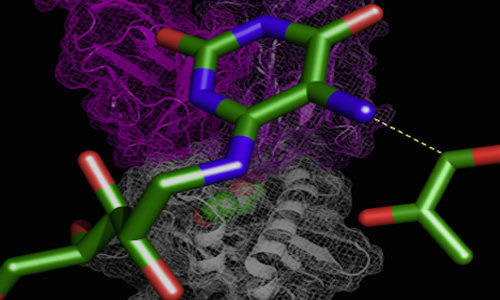An international team of researchers including University of Melbourne staff has identified the exact biochemical key that awakes the body’s immune cells and sends them into fight against bacteria and fungi.
Photo Credits: Jeffrey Mak University of Queensland
The patented work, published in Nature today, provides a deeper understanding of our first line of defence, and what happens when it goes wrong. It will lead to new ways of diagnosing and treating inflammatory bowel disease, peptic ulcers and even TB. It could also lead to novel protective vaccines.
The discovery is the result of national and international collaboration between the universities of Melbourne, Monash, Queensland and Cork. It also depended on access to major facilities including the Australian Synchrotron and the Bio21 Institute.
One of the leads in the research, University of Melbourne Deputy Vice-Chancellor (Research) Professor James McCluskey said it builds on work conducted last year that was acknowledged with an Australian Museum Eureka Prize in 2013.
“Our intestines, lungs and mouths are lined with mysterious immune cells that make up to ten per cent of the T cells in our immune system. Last year we showed that these cells act as sentinels against invading bacteria and fungi. Now we’ve identified the precise biochemical key that wakes up these sentries and sends them into action,” he said.
The immune cells, known as mucosal-associated invariant T cells (MAITS), initiate the immune system’s action against foreign invaders when they are exposed to vitamin B2, which is made by bacteria and fungi.
“MAIT cells are a discovery so recent that they have not even made it into the textbooks,” Professor McCluskey says. “Most doctors know nothing about them. Yet they constitute about one cell in ten of the body’s T cells and half of all the T cells in the liver.
“This is an excellent example of how our collaborative research in Australia can bring groups with expertise in different areas together to make significant advances,” Professor McCluskey said.
Dr Alexandra Corbett, a lead author on the study from the University of Melbourne said the team had unlocked a secret that will enable further investigation in the role that MAIT cells play in health and disease.
Professor Jamie Rossjohn, one of the senior authors and NHMRC Australia Fellow of Monash University,also noted the close collaborations that resulted in these findings. “To get from the first observation to today’s discovery required not just smart people but access to Melbourne’s Bio21 Institute platforms, dozens of visits to the Australian Synchrotron, and a global research network including our Irish colleagues who provided access to mutant bacterial strains.”
“All that coming together allowed us to beat our international competitors and secure the patent,” he said.
Prof David Fairlie of the Institute for Molecular Bioscience at the University of Queensland said the findings may be a valuable clue to disease pathways and new drug therapies.
Story Source:
The above story is based on materials provided by The University of Melbourne, Anne Rahilly.





